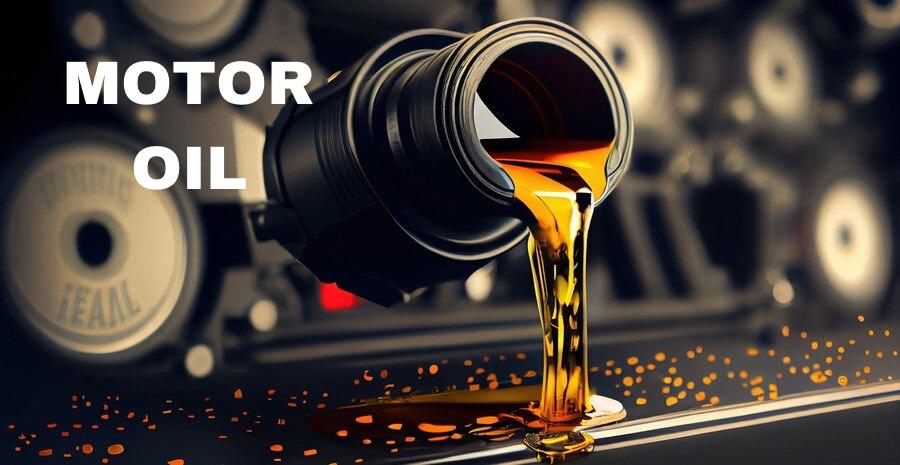When it comes to maintaining your vehicle, few components are as critical as the lubricant that ensures your engine’s optimal performance: motor oil. Understanding the various aspects of automotive lubricants is essential for every car owner. Proper care and knowledge can extend your vehicle’s life, enhance its performance, and even lead to cost savings at the pump. Here’s everything you need to know before making a purchase.
The Purpose of Engine Lubricants
At its core, the primary function of engine lubricant is to reduce friction between moving parts within the engine. This friction, if left unchecked, can lead to overheating and significant wear and tear, jeopardizing engine integrity. Besides providing lubrication, this essential fluid also serves multiple other purposes:
1. Cooling: By distributing heat away from engine components, lubricants help maintain an optimal operating temperature.
2. Cleaning: Most lubricants contain detergent additives that help clean and prevent sludge formation, which can impede engine performance.
3. Sealing: By providing a thin film between pistons and cylinder walls, lubricants help maintain pressure and reduce the likelihood of leaks.
4. Corrosion Protection: Quality engine lubricants contain anti-corrosive additives that protect metal surfaces against oxidation and wear over time.
Understanding the Different Types of Engine Lubricants
Before purchasing, it’s important to familiarize yourself with the various types of available lubricants. There are three primary categories:
1. Conventional Oil: Often referred to as mineral oil, this type is derived from crude oil and provides basic lubrication. It is generally less expensive but usually requires more frequent changes compared to synthetic options.
2. Synthetic Oil: Engineered in labs, synthetic lubricants generally offer superior performance, especially in extreme temperatures. They maintain viscosity better under high temperature and provide enhanced protection against wear. While they may come with a higher price tag, many car enthusiasts believe they contribute to longer engine life.
3. Synthetic Blend Oil: This is a mixture of conventional and synthetic oils. It offers some of the benefits of both types, providing better protection than conventional oil while being less expensive than full synthetic.
Viscosity Ratings Explained
The viscosity rating represents how well the oil flows under different temperatures. Most lubricants are designated with a two-part name, such as 5W-30. The “W” stands for winter, indicating how the oil performs in cold temperatures, while the numbers reflect the oil’s viscosity at 100°C (212°F).
– Lower numbers-before the ‘W’ (e.g., 0W, 5W): indicate better performance in cold weather.
– Higher numbers (e.g., 30, 40): signify better performance at higher temperatures.
Selecting the right viscosity is crucial. Always consult your vehicle’s owner manual, as manufacturers specify the optimal type and viscosity for your engine.
Additives: Enhancing Performance and Longevity
Most engine lubricants contain additives designed to enhance performance. Here are some common additives to look for:
– Detergents: Help prevent sludge and varnish build-up by cleaning engine parts.
– Dispersants: Keep contaminants suspended in the oil, preventing them from settling.
– Anti-wear agents: Protect engine parts by forming a protective layer.
– Friction modifiers: Reduce friction, promoting fuel efficiency.
Understanding these additives can help you choose a premium quality lubricant that delivers high performance and longer life for your engine.
The Importance of Following Recommendations
Always adhere to the manufacturer’s recommendations regarding the type and frequency of oil changes. Many modern engines provide sensor readings that instruct drivers when it’s time to change the oil. While traditional wisdom suggests a change every 3,000 miles, many vehicles can now go 7,500 miles or more between changes if using high-quality lubricants.
Ignoring the manufacturer’s recommendations can lead to premature engine wear, reduced fuel efficiency, and ultimately costly repairs.
Environmental Considerations and Disposal
With increased awareness of environmental issues, consider the eco-friendliness of your selected lubricant. Some brands offer eco-conscious products, such as bio-based oils. In addition, be mindful of how you dispose of used oil. Never pour it down the drain or on the ground. Instead, take it to a recycling center or an automotive shop that accepts used oil.
Cost Factors: What to Consider
While price should not be the sole determining factor when purchasing lubricants, it’s essential to consider the overall value. Higher-priced synthetic options may seem costly, but their superior performance, longer life, and protection can lead to significant savings in the long run by extending intervals between changes and promoting engine health.
How to Choose the Right Brand
Not all engine lubricants are created equal. Popular brands have established themselves based on quality and performance. Research customer reviews, inquire about the product warranties, and seek recommendations from mechanics or automotive experts. Purchasing from established brands ensures that your vehicle receives a product tried and tested.
Conclusion
Understanding the various qualities and specifications of automotive lubricants is crucial for every car owner. Choosing the right type, viscosity, and additive package can significantly impact your vehicle’s performance, efficiency, and longevity. As an informed consumer, you’ll not only protect your investment but also ensure a smooth and efficient driving experience.
For those looking for a dependable option tailored for their vehicle’s needs, consider consulting a professional or trusted source.
Experience premium engine care—visit any 11PLC filling station nationwide today for the best Mobil Lubricants. Your vehicle deserves nothing less! With the right protections in place, you’re well on your way to ensuring that your engine performs optimally for years to come.

